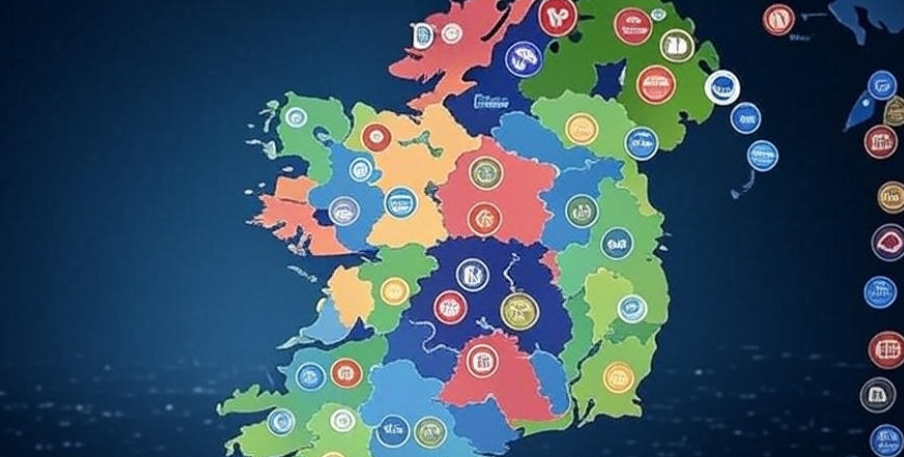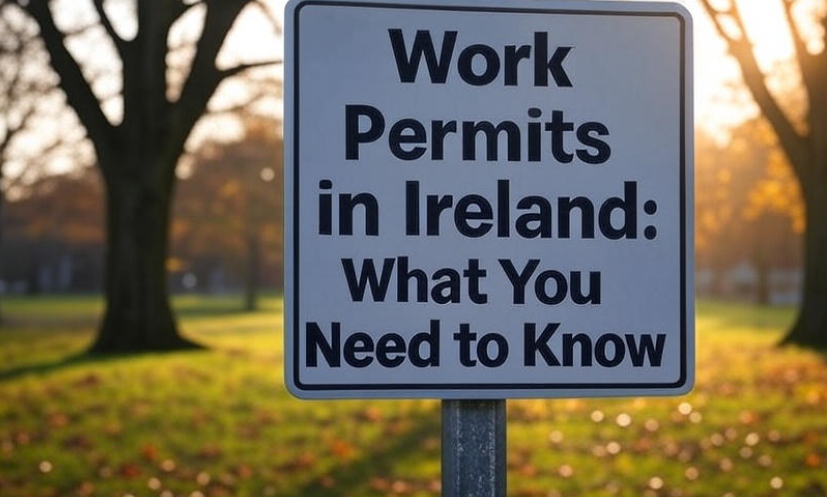When people think about moving to Ireland, one of the first questions that comes to mind is: Can I afford it? It’s not just about how much money you earn but also how much you spend to live comfortably. Ireland is well-known for its beautiful landscapes, friendly communities, and strong job opportunities. But, like anywhere else, the cost of living matters. Let’s look at the reality of salaries compared to everyday expenses.
Why this comparison is important
Salaries in Ireland can look attractive at first glance. However, without understanding housing prices, food costs, transport, and other living expenses, it’s easy to overestimate how much you’ll actually save. A high salary might not feel so high once rent and bills are paid. On the other hand, if you manage expenses smartly, even a modest income can go a long way.
Average Salaries in Ireland
The average salary in Ireland changes depending on the sector, experience, and location. According to recent data:
-
The average full-time salary is around €48,000 per year.
-
Entry-level jobs often pay between €25,000 and €32,000 annually.
-
Experienced professionals, especially in IT, finance, and pharmaceuticals, can earn €60,000 to €80,000+.
But these numbers are only one side of the picture. Let’s compare them with living costs.
Housing Costs 🏠
Housing is the biggest expense in Ireland. Cities like Dublin, Cork, and Galway are particularly expensive.
| Location | Average Rent (1-bed apartment, city centre) | Average Rent (outside city centre) |
|---|---|---|
| Dublin | €1,800 – €2,200 | €1,500 – €1,700 |
| Cork | €1,400 – €1,700 | €1,100 – €1,400 |
| Galway | €1,300 – €1,600 | €1,000 – €1,200 |
| Smaller towns | €800 – €1,100 | €600 – €850 |
If you’re earning €3,000 a month after tax in Dublin, and rent is €1,800, that’s 60% of your income gone just on housing. For many, that’s the toughest part of living in Ireland.
Food and Groceries 🍎
Food prices are manageable compared to rent, but still not cheap.
-
A loaf of bread: around €1.60
-
Milk (1 litre): €1.20
-
Chicken (1 kg): €9.50
-
Eating out at a cheap restaurant: €16–€20
-
A meal at a mid-range restaurant (for two): €60–€80
Monthly grocery bill for one person usually falls between €250–€350, depending on habits. Families obviously spend more, closer to €700–€900 per month.
Transport 🚍
Ireland’s transport costs vary depending on whether you drive or rely on public transport.
-
Monthly Dublin Bus or Luas (tram) pass: around €128
-
Taxi base fare: €4.50, plus distance/time charges
-
Petrol: around €1.80 per litre
Owning a car adds insurance, tax, and parking fees, which can be high for younger drivers. That’s why many people in big cities stick to public transport.
Utilities and Bills 💡
Utilities like electricity, heating, water, and garbage collection usually add up to:
-
Average: €150 – €220 per month for a medium-sized apartment.
-
Internet: around €40 – €60 per month.
During winter, heating costs can rise sharply, especially in older houses with poor insulation.
Healthcare Costs 🏥
Healthcare in Ireland is a mix of public and private services. The public system is partially free, but many people take private insurance for faster access.
-
GP (doctor) visit: around €60 – €70
-
Monthly private health insurance: €100 – €200 per person (depends on plan)

So, how do salaries compare with living costs?
Let’s take a simple example:
| Income Type | Monthly Salary (After Tax) | Rent (Dublin, 1-bed) | Remaining for other expenses |
|---|---|---|---|
| Entry-level (€28,000) | ~€1,950 | €1,800 | €150 (not enough) |
| Average (€48,000) | ~€3,200 | €1,800 | €1,400 (comfortable but tight if family) |
| High (€70,000) | ~€4,600 | €1,800 | €2,800 (good lifestyle, savings possible) |
This shows that living in Ireland on an entry-level salary can be very tough, especially in Dublin. People often share apartments or live outside city centres to save money.
Lifestyle Choices Make a Difference
Not everyone’s cost of living looks the same. For example:
-
If you cycle instead of driving 🚴♂️, you save hundreds per month.
-
Sharing rent with roommates can cut housing costs by half.
-
Cooking at home instead of eating out saves a lot in the long run.
So, while salaries can seem lower compared to the cost of living, smart choices help balance things.
Comparison with Other European Countries
Ireland has higher salaries than many EU countries, but also higher living costs.
| Country | Average Salary (Net) | Rent (1-bed city centre) |
|---|---|---|
| Ireland | €3,200 | €1,800 |
| Germany | €2,800 | €1,200 |
| Spain | €1,700 | €900 |
| Poland | €1,200 | €600 |
This means that while you might earn more in Ireland, you also spend more, especially on housing.
Saving Potential 💰
If you’re single and earning an above-average salary (€50k+), you can save a decent amount each month. But for families, saving can be harder unless both partners work.
People often save by:
-
Living in smaller towns
-
Remote working (less commuting cost)
-
Careful budgeting and avoiding unnecessary luxuries
Is Ireland worth it?
Yes—if your career is in demand. Tech, healthcare, finance, and engineering professionals find Ireland very rewarding because salaries in these sectors are strong compared to costs. But if your salary is low, life in big cities can feel like a struggle.
FAQs
Q1: Can you live in Ireland on €30,000 a year?
It’s possible, but difficult in Dublin. Many people at this income level share apartments or live in smaller towns.
Q2: Is Dublin the most expensive city?
Yes, Dublin is Ireland’s most expensive city for rent, followed by Cork and Galway.
Q3: Are salaries higher in tech jobs?
Definitely. Tech salaries can be double the national average, making it easier to live comfortably.
Q4: Is Ireland more expensive than the UK?
In many cases, yes. Rent and groceries are higher in Ireland, while the UK has more regional price variety.
Q5: How much do you need per month to live comfortably?
For a single person, around €2,500 – €3,000 after tax. For a family of four, at least €5,000 – €6,000 after tax.
Final Thoughts
Ireland is full of opportunities, but the cost of living can eat away at your salary if you’re not careful. The key is balance: know your income, plan your spending, and make lifestyle choices that suit your budget. Salaries in Ireland are competitive, but high rents—especially in Dublin—make careful financial planning a must.
👉 If you’re moving for work, do the math before you arrive. Compare your expected salary with real costs, and you’ll avoid surprises later.




